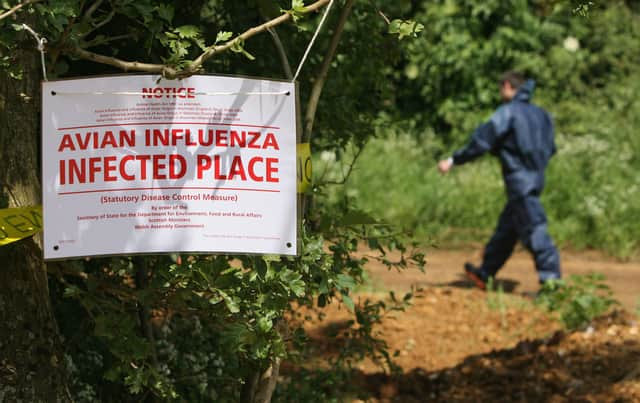Bird flu outbreak confirmed in Cumbria with residents urged to report sightings of dead birds


A bird flu outbreak in Cumbria has been confirmed, with people urged to report any sightings of dead birds to Defra.
Cumberland Council said that the disease was detected at a premises near Bootle. Colin Cox, director of public health and communities at Cumberland Council, said: “I want to reassure residents that the risk to public health from avian flu is very low.
Advertisement
Hide AdAdvertisement
Hide Ad“However, it is important people do not touch or pick up any sick or dead birds to avoid spreading the virus, which can affect humans in rare cases. If you do find any dead swans, geese or ducks or other dead wild birds while out and about, please report them.
“I would also urge bird keepers to be vigilant for any signs of disease and report any suspected cases.”
There have already been reports of dead birds washing up on the west coast of the country. If found, dead birds must not be handled by the public, and dogs must be kept on leads on beaches or other places likely to attract birds. Those who come into contact with bird faeces should wash their hands thoroughly.
The wider risk to the general public's health is considered to be very low.
Advertisement
Hide AdAdvertisement
Hide AdReports of dead birds should be made to the Defra helpline on 03459 33 55 77 or at gov.uk/guidance/report-dead-wild-birds. Defra may advise residents to also report dead birds to Cumberland Council on 0300 373 3730 if they are not able to arrange for them to be cleared.
Bird keepers who suspect bird flu in their poultry or other captive birds must report it immediately by calling 03000 200 301.
This article will continue to be updated with more information.
Comment Guidelines
National World encourages reader discussion on our stories. User feedback, insights and back-and-forth exchanges add a rich layer of context to reporting. Please review our Community Guidelines before commenting.
